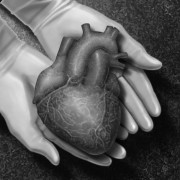Hope for interspecies organ transplantation
A US-German team of scientists used a combination of gene modification and immune-suppressing drugs to keep a pig’s heart beating and healthy in a baboon’s abdomen for almost three years, a scientific breakthrough

The experiment was replicated on five baboons who were able to keep the pig hearts beating for an average of 298 days and a maximum of 945 days. Such cross-species transplants can provoke violent and powerful immune reactions in their subjects, leading to organ-rejection. In early cross-species transplants, “we measured survival in minutes,” Dr David Sachs, transplant immunologist at Harvard Medical School, who has worked on inter-species organ transplantation for several decades, told Science. Prior to the recent breakthrough, organs had never survived beyond 500 days inside another species, reported the BBC.
The experiment’s success boosts hope for successful transplantation of animal organs into humans, for whom there is a shortage of donors. According to the US Department of Health and Human Services, an average of 22 people in the US die daily waiting for donated organs.
In the experiment, the pig hearts were connected to the baboons’ circulatory system through blood vessels in the baboon’s abdomen, while the baboons own hearts continued to pump blood through the body, a known method used in studying organ rejection.
"People used to think that this was just some wild experiment and it has no implications. I think now we’re all learning that xenotransplantation (inter-species organ transplantation) in humans can actually happen," Dr Muhammad Mohiuddin, lead researcher and cardiac transplant surgeon at the National Heart, Lung, and Blood Institute, told Science
Initially, primates were thought to be the best donor candidates due to their genetic closeness to humans. However, using primates posed a number of practical and ethical challenges, reported the BBC. For example, the absence of a large source of captive-bred apes presented a major hurdle, especially since primates take a long time to mature, and some, like chimpanzees, are endangered. The genetic similarity between primates and humans also creates greater risk of inter-species disease transmission, not to mention the ethical questions of rearing primates for organ donation.
Pigs have consequently emerged as better donors, as their hearts are anatomically similar to those of humans, they pose lower risk of disease transmission, and they mature faster than other candidate animals.
Despite the recent breakthrough, there is still a long way to go in inter-species transplantation. Transplant immunologist and physician Daniel Salomon of Scripps Research Institute in San Diego, California told Science that the results so far don’t prove that transplanted hearts will function well in the chest. “Having to actually do the pump work to keep the animal alive… is a big deal,” he said. “Just contracting in the abdomen and doing nothing physiological is much easier.”
The next big test for xenotransplantation will be full pig-to-baboon heart transplants, Dr Mohiuddin told the BBC. He and his team have also written that inter-species transplantation is not far off. “In our opinion, this regimen appears potentially safe for human application for patients suffering from end-stage organ failure who might be candidates for initial trials of xenotransplantation," reported the BBC.
Related Articles
The life-saving potential of blood stem cells
Haematopoietic stem cell transplant provides hope for patients with life-threatening blood disorders by restoring their blood function and immune system
Read moreLiving donor liver transplant a viable option
For patients with liver failure, living donor liver transplant a viable option, however those at risk of developing liver failure encouraged to get regular check-ups to stay healthy and monitor liver function
Read moreHope for mismatched-blood donor kidney transplant
Recent developments allow kidney transplants to take place even when a donor’s blood is incompatible
Read moreLatest Articles
Medical Care
Clinical Exercise Physiologist (CEP): The Emerging of Exercise is Medicine
How Exercising can be a Medicine
Read moreMedical Care
Reversing type 2 Diabetes: Embracing Hope and Determination
Experience the remarkable journey of Ash and his grandfather Atok as they conquer type 2 diabetes through unconventional methods, showcasing the power of love and determination over adversity.
Read moreMedical Care
Bladder Cancer: What You Need to Know
Empower yourself with our comprehensive guide to bladder cancer. Explore symptoms, diagnosis, treatments, and supportive resources to safeguard your health.
Read more